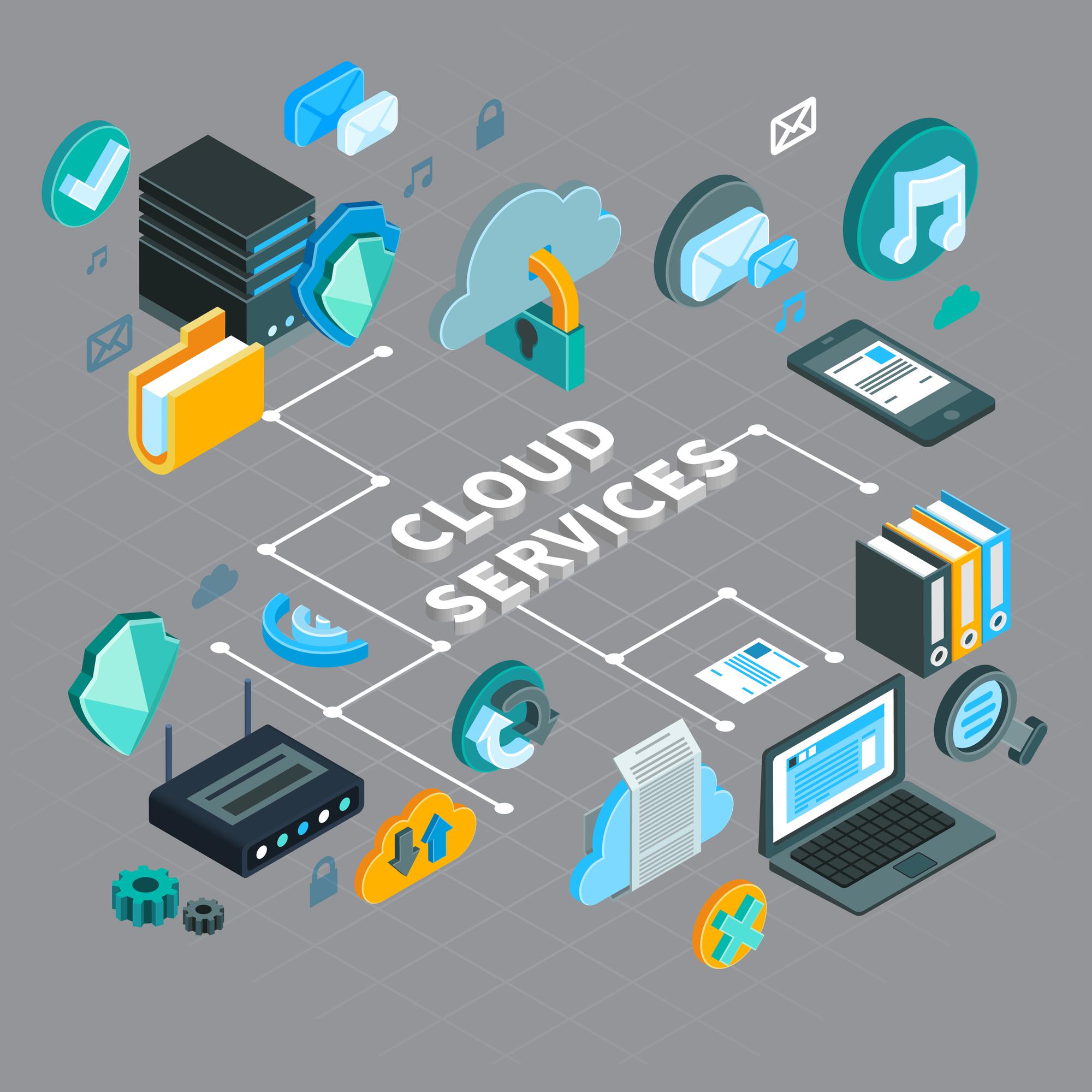“Cloud computing is the delivery of computing services—including servers, storage, databases, networking, software, analytics, and intelligence—over the Internet (“the cloud”) to offer faster innovation, flexible resources, and economies of scale.” – Microsoft
Cloud computing allows its user(s) to store data (music, files, images, passwords, applications and more) on the internet to avoid to host a big amount of data on the devices (computer, tablet, phone). The cloud system permits its user to have more satisfying use of its device as it improves the speed, the productivity, the performance of a machine.
A computer runs more efficiently without a lot of data in it. Indeed, when a user is storing its data on an external disk or an online server it permits to the computer to works effectively. Alternately of having an external disk, on which it’s required to manually insert the data, with the cloud it is possible to set up a backup for a selection of information.
Moreover, due to its online connection, the cloud gives the possibility to have access to information through any device at any time, anywhere (with an internet connection).
The creation of cloud computing in increasing with the digital era. There are three cloud computing deployment models:
- Public Cloud is provided by a third party such as Google, Amazon, Microsoft on which collaborative projects can be developed, with infrastructure and services already created for all consumers.
- Private Cloud is mostly used for a single company or organisation for a private network. The access is possible only with authorisation and the infrastructure and software have to be established from the organisation regarding its need.
- Hybrid-Cloud is a mix between the public and private cloud: “they are designed to allow the two platforms to interact seamlessly, with data and applications moving seamlessly from one to the other.” (Vxchnge)
According to the European project “L-Cloud: Developing Tomorrow’s Cloud Education Leaders” there is a lack of information in Education about the benefits that cloud computing can offer. L-Cloud aims at helping European educators/teachers to stay up to date about the evolution of cloud computing and improve their digital skills through:
- guidelines for Skills and Competencies for Adaptive Education Cloud Leaders
- a qualification framework for Education Cloud Leaders based on Skills and Competence
- the design of a course for developing adaptive education cloud leaders.
Last but not least, the European Commission is developing a strategy around the use of cloud computing in Europe for the public sector and business. Cloud computing has a bright future in Europe, to give access to the last digital technologies to all European citizens and enterprises within high security. You can have further information on https://ec.europa.eu/digital-single-market/en/cloud.
Cloud computing is a boost for the European cities and institutions to fasten the spread of information and more. Stay up to date on our social media channel to know more about cloud computing!
- https://azure.microsoft.com/en-us/overview/what-is-cloud-computing/
- https://aws.amazon.com/types-of-cloud-computing/?nc1=h_ls
- https://www.vxchnge.com/blog/different-types-of-cloud-computing
- https://en.wikipedia.org/wiki/Cloud_computing#Deployment_models
- https://www.l-cloud.eu/en_US/
- https://ec.europa.eu/digital-single-market/en/cloud
